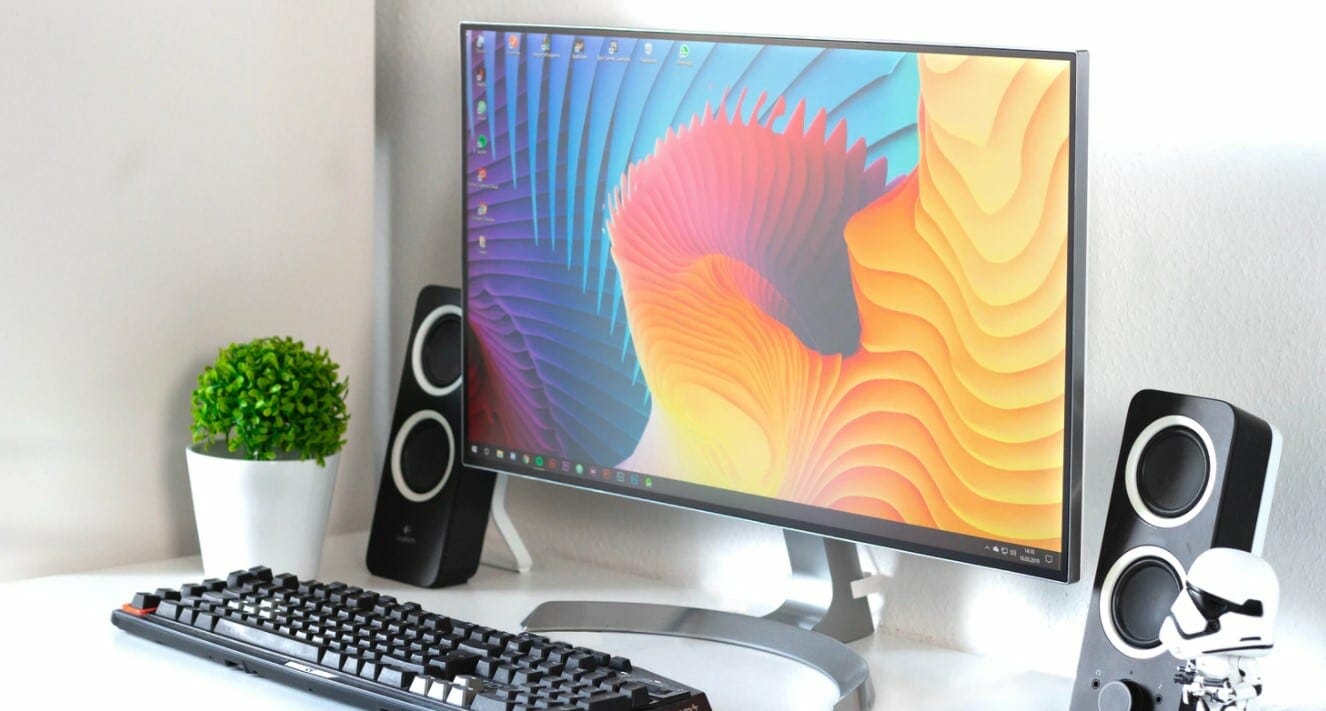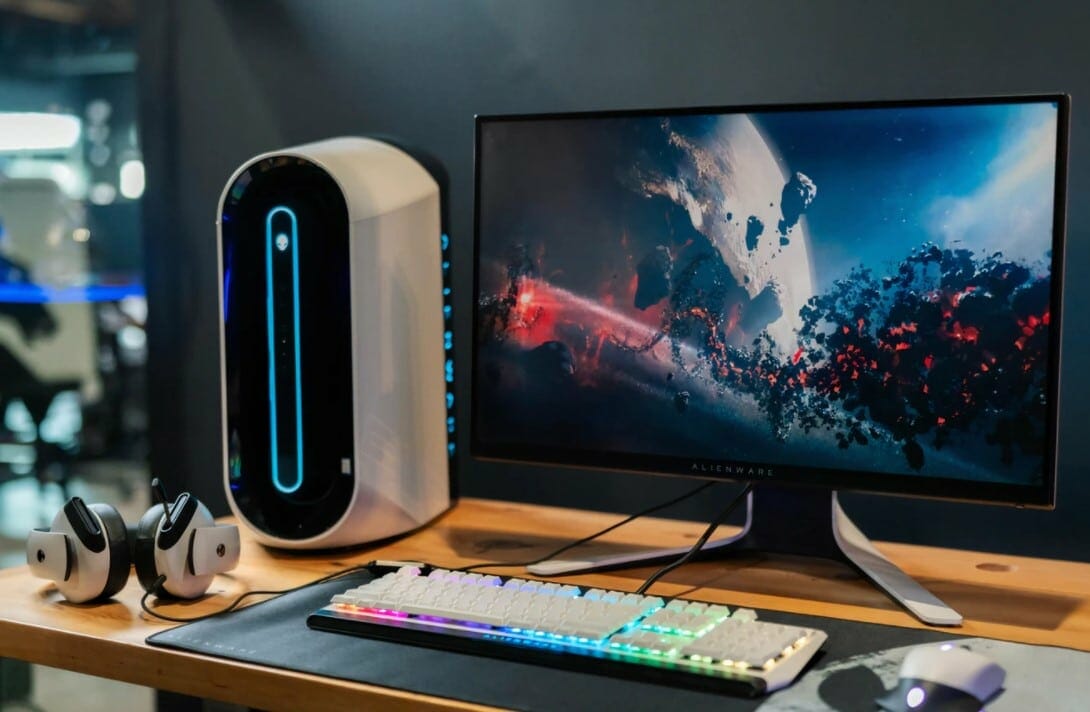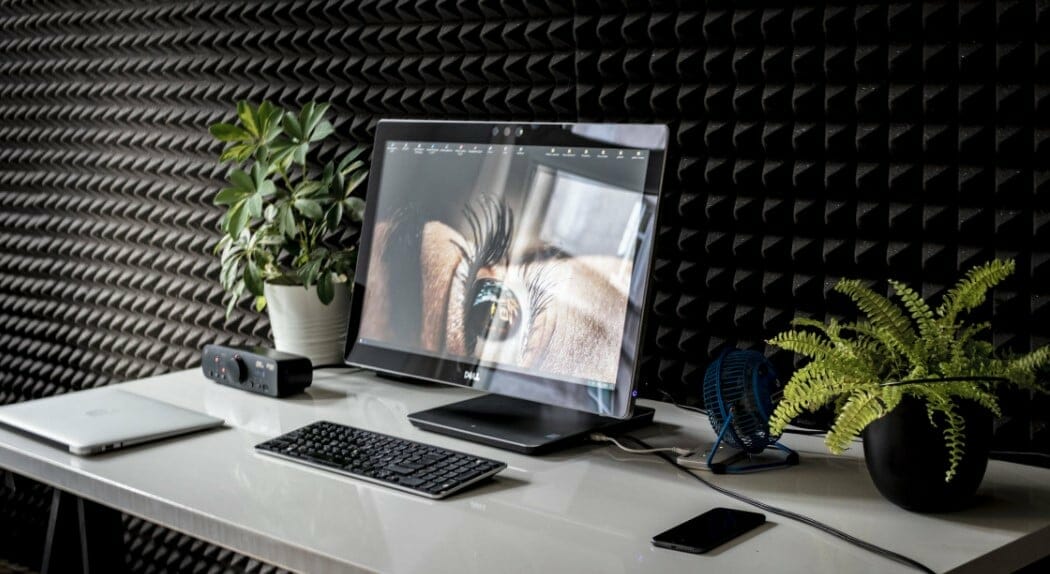Table of Contents
If you're shopping for a gaming monitor and someone from the store recommends a branded 240hz monitor, you're probably wondering: "Is a 240hz monitor worth it?"
It may be an attribute found in higher-spec displays, but this shouldn't be your only deciding factor. This post should clear your 240hz monitor dilemma for you and help you weigh your options beyond the size and color of a display. There's also the best 240Hz monitor review for further reading.
How Do Refresh Rates Work for Monitors?
You won't be able to understand your need for a 240hz monitor if you don't know how refresh rates work.
Simply put, the refresh rate is the number of times per second a monitor updates (or "redraws") the screen with new images. It is measured in frequency (Hz), so if you're checking out a 240 Hz monitor, it means it can update the entire screen 240 times per second. Technically speaking, the higher a screen's refresh rates, the smoother visuals are delivered on the screen.
There are two reasons why monitors with higher refresh rates are advertised to the creatives and gaming world.
- First, a standard 60Hz monitor can handle emails, access spreadsheets, and work on documents effortlessly.
- Second, the content's frame rate must be able to match the monitor's refresh rate. Here, the "content" I'm referring to can be a movie, game, or any other video content. A-frame rate measures the frequency (or how often) the content is updated with a new frame. Most movies are shot at 24 frames per second, which is definitely able to be played as intended on a 60Hz display. In gaming, the higher the FPS, the smoother and more responsive the game will seem.

Refresh rate is a monitor's attribute, while the frame rate is an attribute of the content (or information being sent to the monitor). Both attributes would have to agree on what is being shown on screen. If not, screen tearing (two frames shown as one) would occur since the frames per second the video card is spitting out cannot be accommodated by the monitor's refresh rate.
Now that you have a bit of background on refresh rates and frame rates, we can now discuss 144 Hz vs 240 Hz and other higher refresh rates in between.
Can You Tell the Difference Between 144Hz and 240Hz Monitors?
Do you really see a noticeable difference between a 144 Hz monitor and a 240 Hz monitor? For someone who began with 60 Hz monitors (and was perfectly happy playing games and watching movies on them) then go through all developments of succeeding high refresh rate monitors, I know exactly how you feel right now.
- You will definitely feel the difference if you jumped from a 60 Hz monitor to a 144hz monitor
- There is a slight increase in improvement from 144 Hz to 240hz, but not enough to notice completely.
The dilemma can be absolutely frustrating, especially if you are comparing the performance of 144Hz vs 240Hz monitors without experiencing older screens. But, if you're like me and you enjoyed every upgrade from 60 Hz monitors to your current 144hz monitor, the natural progression is you'd upgrade to a 240 Hz monitor.

If your computer can handle 240hz monitors, it is 100% worth the upgrade since it is the most popular commercially available, high refresh rate in monitors today. Not the highest though, since 360Hz is already available, but not as commonly used as 240hz monitors.
But wanting a 240 Hz display isn't enough of a reason to buy one. You must also consider your computer's graphics card before shopping for a high refresh rate display.
GPU Consideration
Ask any gamer about any GPU-related advice and you'll soon find out that it is a totally different world with a whole other set of considerations. But if your problem is deciding between a 120hz/144hz or 240Hz monitor, you're going to have to face this topic.
Simply put, a gamer will be able to avoid lag or screen tearing if his computer has a GPU powerful enough to output a high frame rate preferably equals to the monitor's refresh rates. This means:
- a 120Hz monitor should pair with a 120 fps from GPU,
- or a 240 Hz monitor & 240 FPS from GPU.
This way, the gamer could still take advantage of the advanced refresh rates.

If your GPU has a lower spec than your monitor's refresh rate, many experts would say to upgrade your card first before spending more money on the display. There is no use in having a high-spec monitor if your PC cannot handle high FPS - see best PC monitors here.
Is 240Hz Monitor Overkill?
As I explained above, if you're going to use the 240hz monitor for just basic typing, spreadsheets, and similar tasks, then using a 240hz display is probably overkill. Heck, even a 144 Hz display is overkill for such tasks.
But if you're talking about bumping up your gaming experience, or making sure your display can handle the games you're looking forward to playing, then weigh the pros and cons and see where you lean more.
You will definitely see the difference if you play games competitively. The bump from 144 Hz to 240 Hz refresh rates (when paired with a powerful graphics card) can have noticeable improvements to your eSports gaming experience. On the other hand, you can get decent gaming benefits with a cheap G-Sync monitor from this article.
Advantages of a 240 Hz Monitor
Disadvantages of a 240 Hz Monitor
There are two tradeoffs if you choose to go with displays equipped with high refresh rates:
Do note that the disadvantages of a 240Hz monitor can always be solved by either upgrading the specs of the computer's GPU or choosing a specific panel technology (such as TN panels). They're not permanent deal-breakers, but just something to think about if you're trying to decide whether to go with a 144hz vs. 240hz monitor.
240 Hz Monitor - Is it Worth the Difference?
The answer to this question depends largely on the person going to use the 240 Hz monitor and what his computer's technical specifications are. Here is what I'd recommend:
- Competitive gamers (those whose jobs are professional gamers) should definitely invest in a 240Hz panel to feel the smooth gameplay regardless of the game. You will notice less lag and fast response times when playing games like CS GO, Overwatch, Fortnite, PUBG, and Battlefield.
- Hobby gamers (those who play during their downtimes) can actually enjoy the smooth performance of a 240 Hz panel, but if they use the same computer for creative work that demands high-quality color production, this can actually be a dilemma. Which would you prioritize: fast response time or picture quality?

- If you are a non-gamer person and you are going to use the 240 Hz solely for document processing (chats, reading emails, spreadsheets, and other light tasks) without the possibility of gaming, then a 204 Hz display can be considered overkill for any non-gamer.
- If you work in IT, a 240HZ monitor can help in productivity since some tools require the most up-to-date tech for color and image quality to be shown as intended.
- If you have no computer and this is your first time buying a multi-use PC (gaming and work), any panel with 120 Hz or 144Hz displays should work fine. Just don't go for a 60 Hz monitor, or suddenly get a change of heart and use your 120Hz display for competitive gaming use.
240Hz Monitors for Future-Proofing
As you can see, choosing 240 Hz monitors really boils down to what you're going to use your computer for, so I hope these recommendations help you with your shopping decision.
But as with any tech developments, there will always be newer and better panels developed to make sure that they can play new gaming titles with high frame rates, so if you can afford the newer or better option, then I say go for it. Monitors with low refresh rates won't be able to get better (they will get outdated in time). As such, as long as your expectations are in the right place, buying 240Hz monitors ensures your computer parts are future-proofed.


